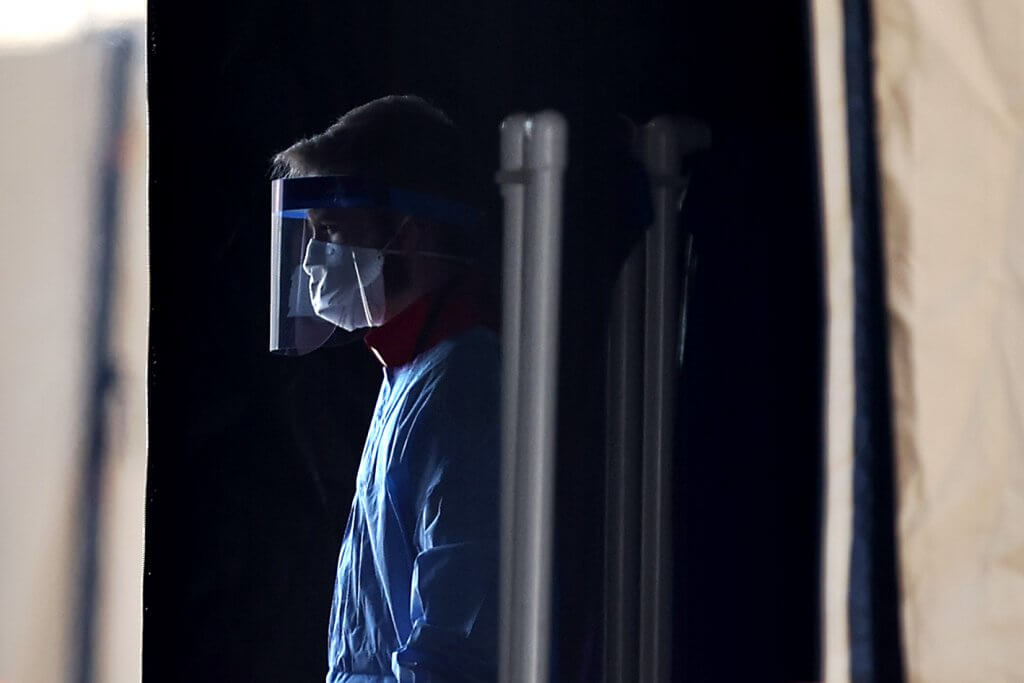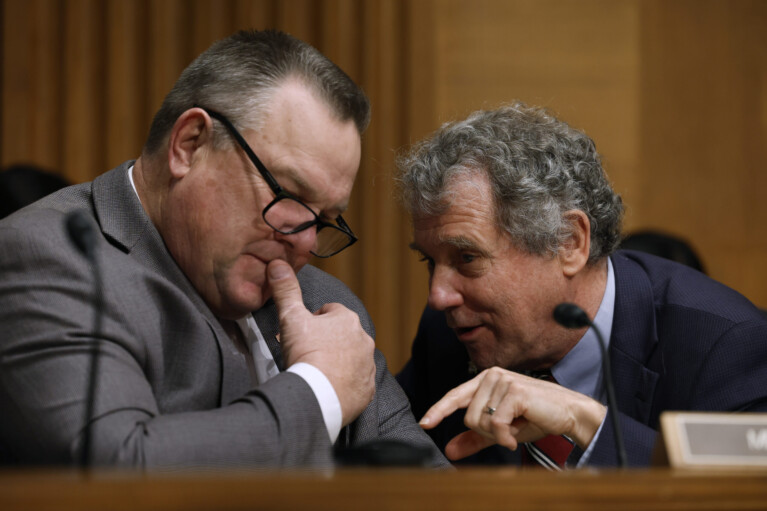
With Gov. Lawrence J. Hogan Jr. (R) calling for universal COVID-19 testing at Maryland nursing homes this week, union workers say the state’s testing trove should also be dedicated to prisons, where workers and inmates are prone to outbreaks.
At a State House press conference on Wednesday, Hogan laid out a plan for using the testing kits his administration bought from South Korea: universal testing at nursing homes; drive-through testing for Eastern Shore poultry workers and their families; more tests for hospital workers and first responders; and deployment to communities with high rates of infection by the novel coronavirus.
What leaders of Maryland’s largest public employee union wanted to hear, but didn’t: more testing for the essential workers of state government, especially those reporting to correctional facilities and treatment centers, which experts say are particularly vulnerable to the spread of the virus.
“The state of Maryland is sending 15,000 people to work every day at work sites from highways to prisons to hospitals to juvenile facilities ― and they cannot get a test,” said Stuart Katzenberg, director of collective bargaining and growth strategies for AFSCME Maryland Council 3, said.
On Thursday evening, the Department of Public Safety and Correctional Services confirmed 226 COVID-19 cases among inmates, corrections officers and staff throughout its facilities. Seventy-two percent of those infected are correctional officers, and there were an additional 21 cases among contract workers.
The state’s Department of Juvenile Services has reported 17 positive cases, including 12 staff members and five youth detainees. Three of the staffers and all five youth have recovered, according to the department.
There are more than 21,700 confirmed COVID-19 cases statewide.
On Thursday evening, Hogan spokesman Michael Ricci said the administration intends to include state workers among those first responders prioritized for testing, as well as people in state custody. A timeline for when the expanded testing will be rolled out has been unclear.
Ricci said the state has been “proactive and aggressive” in addressing concerns at state-owned congregate living facilities and this week started posting statistics about caseloads in state prisons publicly.
Hogan said in an interview with Washington Post Live on Thursday that the state was using “all we can possibly use” of the South Korean test kits, which were guarded at gunpoint when they arrived at BWI earlier this month.
Nevertheless, there are challenges getting enough supplies.
“AFSCME is surely aware of the challenges every government and medical system is facing when it comes to [personal protective equipment], but we have strong policies in place in these facilities, and we are going to continue being proactive and aggressive,” Ricci said.
The scale of outbreaks at nursing homes is particularly severe, prompting the state to take action there. More than half of the state’s 1,047 confirmed deaths have been among residents at nursing home and assisted care facilities.
But the number of COVID-19 infections in prisons could be higher than official reports because of current testing policies, the union said.
Samuel Olowookere, president of AFSCME Local 1319 for employees at Patuxent Institution, said when state employees are screened out from being able to work ― they exhibit a fever or answer health screening questions in a concerning way, for example ― they are sent home, and told to get a test through their health provider, which is not always available.
“The state is not testing the staff and inmates as part of normal protocol,” Olowookere said. “We believe that correctional officers and inmates should be tested to have better control over the situation than we have now. Nobody knows who has it.”
Advocates also pressed for increased testing at prisons on Thursday.
At a virtual meeting hosted by Baltimore City State’s Attorney Marilyn J. Mosby (D) Thursday evening, Out For Justice Executive Director Nicole Hanson said the makeup of the state’s prison population is not unlike that of a nursing home: Both scenarios present situations where people aged 60 and older live in tight quarters, oftentimes with underlying health conditions.
The true scope of cases in state prisons isn’t known, she said. “How can you report individuals having COVID if you don’t even have testing behind the walls?” she asked.
Dr. Chris Beyrer of Johns Hopkins Bloomberg School of Public Health said “time is not on our side” when it comes to measuring COVID-10 in prison settings
Beyrer pointed to the Marion County Correctional Institution in Ohio, which universally tested its inmate population and staff, finding that 73% of everyone tested showed positive results.
“We do need better data — there’s no question about that — and we need substantially more tests,” he said Thursday evening.
Department of Public Safety and Correctional Services officials said workers at state prisons have been given protective equipment in line with guidelines from the Centers for Disease Control and Prevention, including a face shield, gloves and a sneeze guard or surgical mask.
But AFSCME President Patrick Moran said a shipment of higher-grade N-95 makes was promised this week, but didn’t arrive. Employees in other agencies are asked to re-use equipment and replenishment isn’t timely, Moran said.
“We’ve asked for not just the stuff for us, which is important for our members, but for the communities we’re caring for. We want the curve to be flattened, we want transmission to go down, we don’t want people to be sick and dying,” Katzenberg said. “But the state is leaving our people behind and leaving wards of the state behind consistently.”
Hannah Gaskill contributed to this report.




 Creative Commons Attribution
Creative Commons Attribution